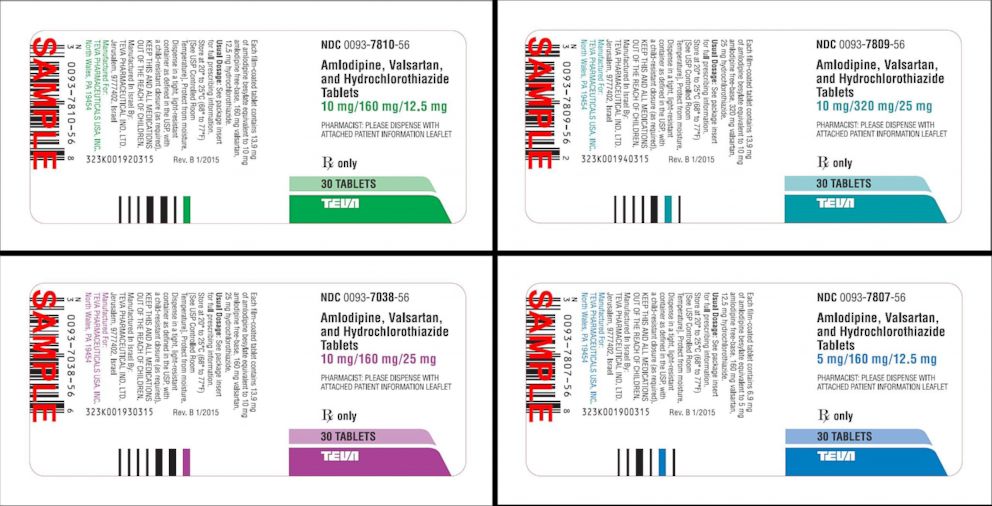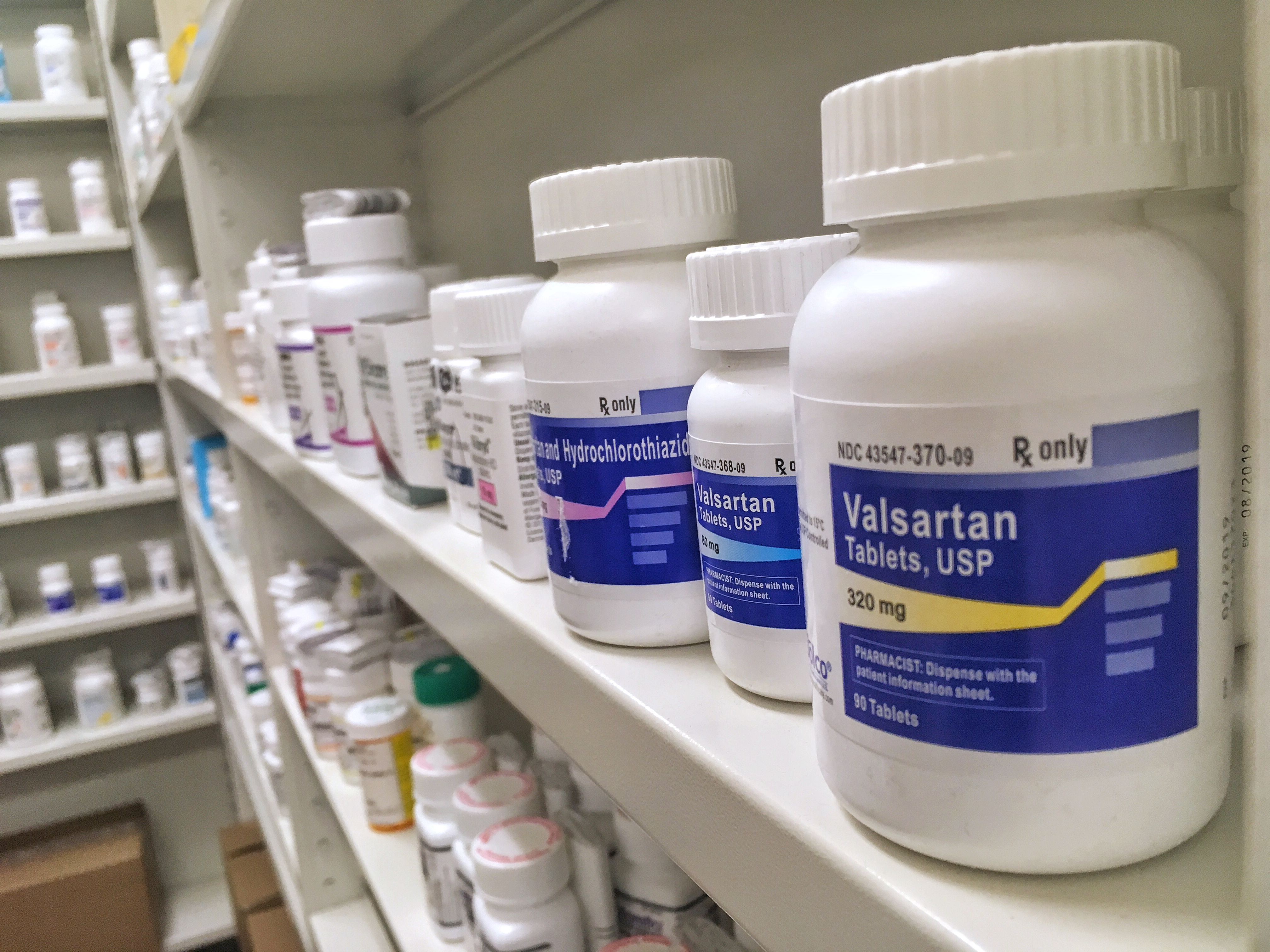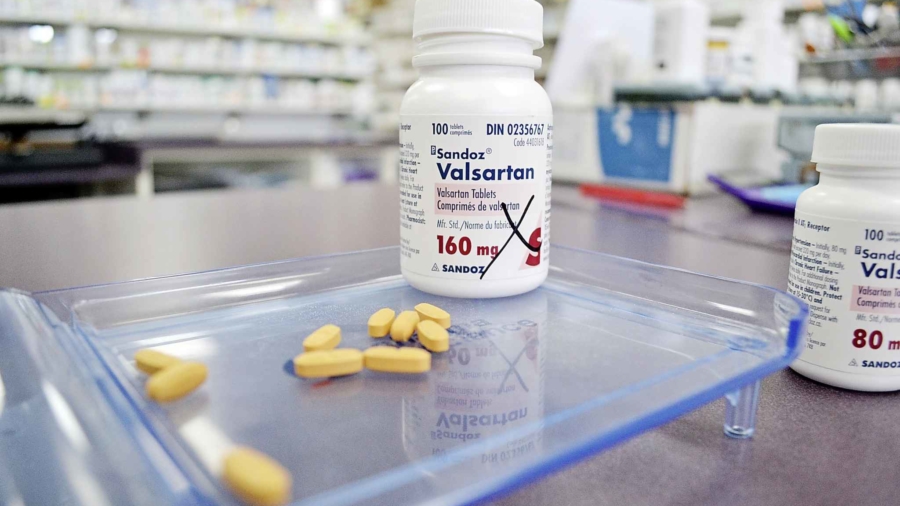Written by Katie Hanna
Valsartan, commonly known as Diovan, is a medication prescribed to patients diagnosed with heart disease complications such as high blood pressure, congestive heart failure, and cardiomyopathy. Valsartan is a class of medications known as Angiotensin II receptor blockers (ARB) used to treat these conditions.
Web MD defines high blood pressure, or hypertension, as a condition in which the force of blood against the artery walls is too high. High blood pressure can be caused by obesity, excess alcohol consumption, smoking or heredity.
Congestive heart failure which has a variety of possible causes is a chronic condition in which the heart doesn’t pump blood as well as it should.
Cardiomyopathy, or an enlarged heart, is a progressive disease in which the heart is abnormally enlarged or thickened. As a result, the heart muscle’s ability to pump blood is less efficient.
The Centers for Disease Control and Prevention states that approximately 610,000 people die of heart disease in the United States every year– that’s 1 in every 4 deaths. These shocking statistics indicate that heart disease is the leading cause of death for both men and women.
In July 2018, the Food and Drug Administration (FDA) issued a recall for some Valsartan drugs. The recall is due to the identification of an impurity found in some Valsartan medications. The impurity is N-nitrosodimethylamine (NDMA) was has been confirmed to be likely carcinogenic.
FDA Commissioner Scott Gottlieb, M.D. stated, “When we identify lapses in the quality of drugs and problems with their manufacturing that have the potential to create risks to patients, we’re committed to taking swift action to alert the public and help facilitate the removal of the products from the market.”
By the end of 2018, the FDA identified yet another carcinogen in recalled samples known as N-Nitrosodiethylamine (NDEA). NDEA, closely related to NDMA, has also been classified as a probable carcinogen by the Environmental Protection Agency (EPA).
The EPA explained that nitrosamines like NDMA and NDEA can be produced from “industrial sources through chemical reactions, such as those that involve alkylamines with nitrogen oxides, nitrous acid or nitrite salts.”
NDEA exposure has been known to cause liver damage and low platelet counts if consumed long-term according to the EPA. In addition, multiple studies have confirmed that high consumption of NDMA can increase the risk of gastric cancer as well as cause tumors in the liver, respiratory tract, kidneys, and blood vessels.

After their findings were reported, the FDA recommended that patients taking one of the affected Valsartan drugs continue taking the medication until their physician provided an alternative. While it has been confirmed that NDMA and NDEA are likely carcinogens, it has not yet been ascertained how exposure to the different levels of these two carcinogens in Valsartan drugs affected the patients that used it. As you might expect, this is a dangerous legal position for them to be in.
On August 16, 2018, a case was filed in New York against Valsartan manufacturers as well as pharmacies that dispensed these medications. The case, Duffy vs Prinston Pharmaceutical, Inc., et al was later transferred on October 11, 2018, to the United States District Court in New Jersey and given class-action status after a consolidation order was filed by the Judicial Panel on Multidistrict Litigation. The order covers 11 cases from throughout the United States.
The filing states that the plaintiffs are seeking damages from the defendants because a generic version of valsartan, that contained carcinogenic impurities, was developed and then distributed for six years before the impurities were detected. In addition, within the filing, a report is cited from the European Union (EU) which declared that the Zhejiang Huahai drug factory in China which produced the recalled Valsartan did not follow accepted EU code of conduct practices for drug manufacturing.
The plaintiffs listed in this filing each claim they were prescribed valsartan for an extended period of time and each time they refilled the prescription, received information about the medication, including “representations and warranties that the medication was properly manufactured and free from contaminants and defects.”
It is still unknown how many manufacturers have produced contaminated valsartan. Meanwhile, more and more patients are coming forward who claim to have been affected by the carcinogenic impurities in these medications.
Paul Geske of McGuire Law in Chicago, who represented Robert Kruk, lawyer for the plaintiffs, in the JPML filing stated in an interview that, “This litigation will be massive. Our sense is that there are about a million and a half people who take Valsartan-containing drugs every year.”
He went on to say “The FDA investigation that led to a number of suits being filed is still ongoing. I think this has the potential to be one of the largest recalls and one of the largest MDLs in recent memory. At the proceeding before the panel, there were a number of firms there who claimed to represent thousands of plaintiffs who have not yet filed cases.”
Prinston Pharmaceuticals fought back in a statement they released in December 2018. They claimed that several media outlets have significantly misinterpreted and mischaracterized the FDA’s warning letter “disregarding all of the positive, proactive steps which the company has implemented and will continue to implement.”
The statement went on to say, “Prinston Pharmaceutical, Solco Healthcare, Zhejiang Huahai, and their affiliated companies assure the public, drug prescribers and patients that they are taking every step to ensure that their products remain safe, therapeutically effective, and meets the highest standards.”
Citations:
- Tricker, A.R. Preussmann, R. “Mutation Research/Genetic Toxicology.” Volume 259, Issues 3–4, March–April 1991, Pages 277-289.
- Song, Peng. Wu, Lei. Guan, Wexian. “Dietary Nitrates, Nitrites, and Nitrosamines Intake and the Risk of Gastric Cancer: A Meta-Analysis.” Nutrients 2015.
- Insuan, Oraphin. Charoensin, Suphachai. Tarika, Roytrakul, et al. “Carcinogenicity and proteomic analysis of N-Nitrosodiethylamine in rats.” Vol 16 No 2 (2018): May-August
- Duffy et al v. Solco Healthcare U.S., L.L.C. et al. New York Southern District Court. 2018

Katie Terrell Hanna
Katie Terrell Hanna is a professional freelance writer and consultant. She developed an interest in litigation journalism after an internship at the Office of State Attorney in the 15th Judicial Circuit of Palm Beach County, Florida. She is also a graduate of the Center for Pre-Law/Law Related Careers at the Gerald A. Williams Center for Pre-Law in West Palm Beach, Florida and was inducted into the Law Honor Society of her graduating class.

Get A Free Valsartan Case Review
If you or your loved one took valsartan contaminated with NDMA, Fill out the form and get a free case review.


